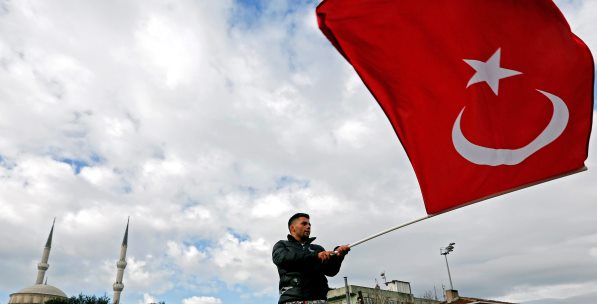
Turkey's New Foreign Policy
The deepening crisis in the Middle East increases the value of Turkey's friendship, which the United States and others are trying to win back. In turn, Turkey cares very little about being liked. The country's leaders are completely focused on national interests.
Share
Since the Justice and Development Party’s (AK Party) rise to power in 2002, Turkey's government has pursued foreign policy goals designed to maximize national interests and reflect the people's moral values. The main goal of this new approach has been to make a positive impact on the region's economic, cultural and political life in addition to helping the international community address pressing global challenges.
For the first eight years of AK Party rule, the international community celebrated Turkey as an emerging power and hailed then-Prime Minister Recep Tayyip Erdoğan as a constructive leader. Needless to say, positive reviews of Turkey's performance were closely related to the government's domestic success and international achievements.
2010 marked a turning point in Turkey's relationship with the outside world. Mr. Erdoğan, who had transformed the country over the past decade, was keen on realizing Turkey's potential instead of settling for what the world was willing to give his country. Strained relations with Israel, coupled with the Turkish leadership's decision to ignore U.S. economic sanctions against Iran, added to tensions between Turkey and the West. Ankara's approach to the Arab Spring also differed from Western pundits, who saw the protests as an Islamist uprising, and authoritarian Arab regimes that claimed the events were a Western conspiracy. The Arab Spring, Turkey maintained, merely reflected a popular demand for democratization and change. When Egyptian President Mohammed Morsi was removed from power in 2013, Turkey had a falling out with Saudi Arabia.
Then Syria happened. The civil war not only strained Ankara's relations with Tehran and Moscow but also created problems between Turkey and the United States, whose president outsourced the anti-DAESH campaign to the Democratic Union Party (PYD), the PKK's Syrian franchise.
It was around the same time that pundits started to talk about what they described as the lurking authoritarianism and widespread corruption in Turkey. The country, they claimed, had turned its back on the West. The government's policies have since been systematically taken out of context by reporters and experts who conveniently ignored the issues that they were designed to address. Starting in 2010, talk about Turkey the emerging power quickly gave way to speculative hit pieces about Turkey's isolation.
In recent years, Turkey has adopted a two-pronged approach: First, the country kept falling back on defense under pressure. Turkish leaders repeatedly called for a political solution to end the Syrian civil war, told the Egyptian regime to broaden channels of political representation and maintained that People's Protection Units (YPG), the PKK's Syrian franchise currently allied with the Obama administration, was the enemy.
Turkey's leaders, however, were quick to recognize that the time for reliable long-term alliances was over. Instead, they started talking to all players and struck deals geared toward short-term collaboration with limited goals.
In light of President Erdoğan's U.S. trip, one thing is clear: The deepening crisis in the Middle East increases the value of Turkey's friendship, which the United States and others are trying to win back. In turn, Turkey cares very little about being liked. The country's leaders are completely focused on national interests.
[Daily Sabah, April 6, 2016]
Tags »
Related Articles





